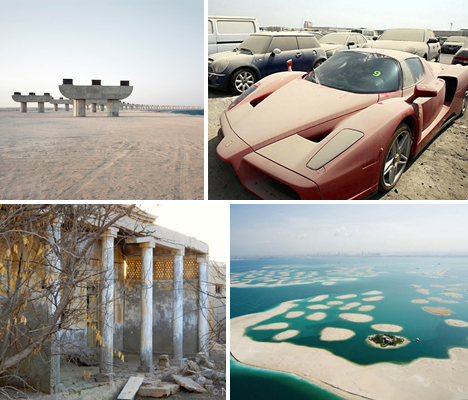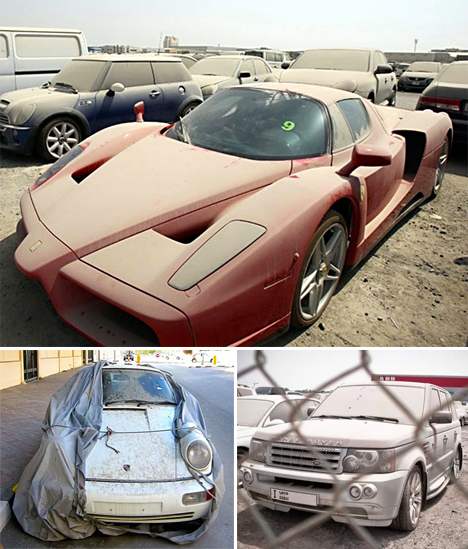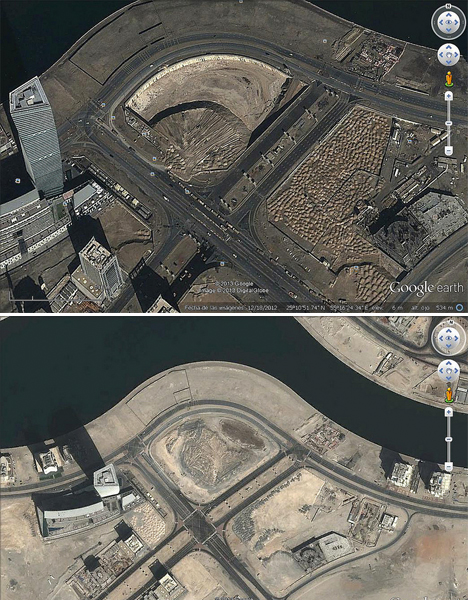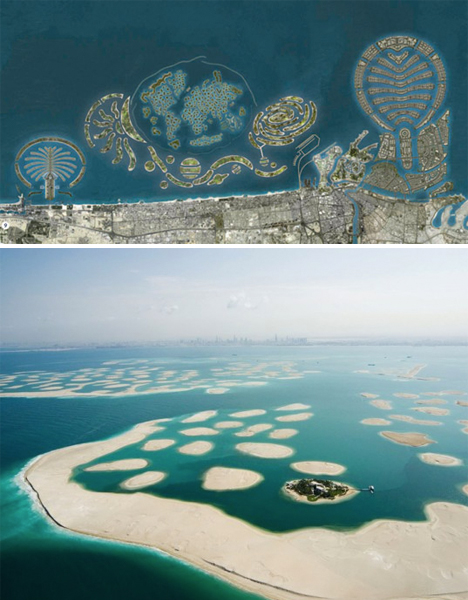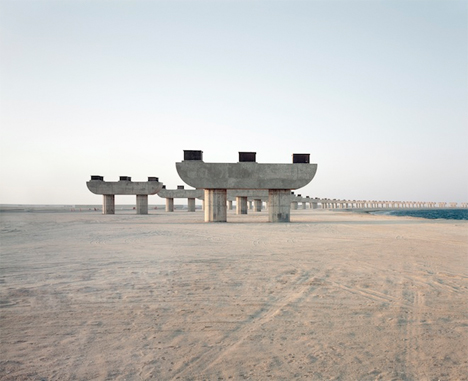Known for its extravagance and disdain for rational limits, Dubai never shies away from incredibly ambitious architectural projects – but when they fail, as they often do, the result is a whole lot of sandy half-excavated construction sites. But along with the rest of the United Arab Emirates, this hub of vast oil and gas fortunes is in a state of constant flux, with a rapidly changing landscape that can transform from a swath of desert to a strip of glittering skyscrapers in what seems like no time at all.
Lots of Luxury Vehicles
More than 3,000 abandoned luxury vehicles were counted in Dubai in a single year, left behind, as the story goes, when expats fled the nation to escape debts after the economy crashed. One such vehicle was a limited edition Ferrari Enzo, worth more than $1.65 million. Others include $100K Range Rovers, Porches, BMWs and Mercedes. Photographs show them covered in dust and sand, sometimes haphazardly protected with tarps. Under Sharia law, non-payment of debt is a criminal offense, and foreigners have been prevented from leaving the Emirates for missing a single credit card payment or bouncing a check. But according to Business Insider, it’s not just expats fleeing financial repercussions. Locals bought cars they couldn’t afford, and then struggled to make the payments. On the plus side, bargain hunters have gotten some insane deals on the cars when they’re re-sold at rock-bottom prices at police auctions.
Ongoing Wastelands of Stalled Construction Projects
Dubai itself and the surrounding areas often have large tracts of land that look like wastelands of sand and abandoned construction equipment thanks to countless projects that are started and then put on hold for financial reasons. At any given time, there are thousands of such sites in various stages of progress, and while some eventually pick back up and are completed, others stay like this for years or are eventually scrapped. Nakheel Tower, pictured top, was meant to be the centerpiece of Dubai’s famous man-made Palm Islands, and the site had been cleared and leveled before the project was canceled in 2009. Another project, the Burj Al Alam, suffered a similar fate, with trucks finally bringing in loads of sand to refill areas that had been excavated after developers decided not to go forward with the 108-story tower.
World’s Largest Artificial Islands On Hold and Sinking
Dubai’s artificial islands, including the Palm Islands, the World and the Universe, were intended to be the ultimate in luxury possessions, sold only to millionaires who could afford the hefty price tags and the yachts required to reach them. While a few of them have already been developed, with residents beginning to move in, others have sat in a state of partial completion since construction began in 2001. The 2008 financial crisis led developers to pull back from actively working on the project, and by 2011, some of the islands began sinking into the sea. Despite the developers’ denials, third-party inspectors confirmed that the islands were already eroding, and aerial photographs show that those intended to make up the shapes of the world map are becoming little more than a patchwork of rounded blobs.
Jebel Ali Village And Its Namesake Palm Island
Jebel Ali Village, built outside Dubai i 1977, was a settlement of about 300 villas for expatriates along with schuss, a club, a park, medical clinics and a desalination water plant. It didn’t have its own supermarket, requiring residents to make a long, hot drive without air conditioning all the way to Dubai to purchase supplies back when Abu Dhabi Road was a single-lane unlit carriageway used by camels as well as vehicles. By 2011, the once-treasured community was entirely abandoned. One of the artificial islands built off the coast of Dubai was named in its honor, but that project has been put on hold, leading to even more abandonments with the Jebel Ali name. The monolithic structures pictured above were built as part of a flyover going to Jebel Ali Palm Island, but as construction was halted, they’ve just been left like this, looking like a row of ancient ruins. But as with many other projects in Dubai, they’re in transition – the village is being rebuilt.
